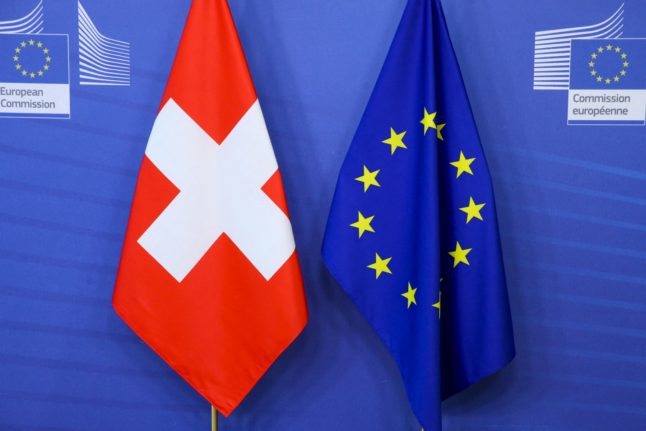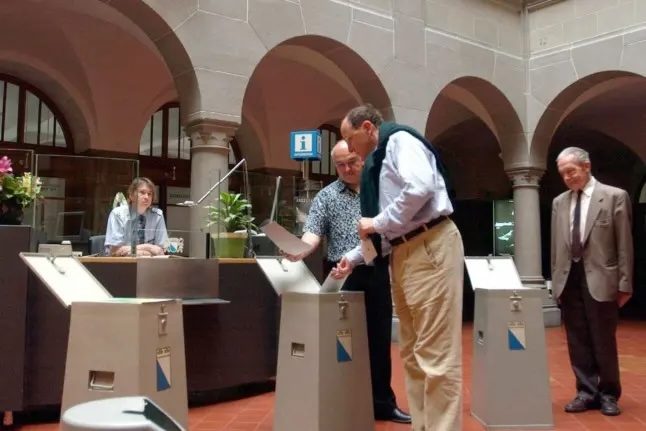Members of Switzerland’s largest party, Swiss People’s Party (SVP) kicked off their fight by releasing hundreds of red balloons adorned with the Swiss flag in front of government and parliament buildings in Bern, holding up signs saying: “No to the EU subordination treaty”.
Thomas Aeschi, head of the SVP parliamentary group, warned that “our country will become a colony of Brussels” if the deal goes through.
The SVP campaign came as the European Commission said Tuesday it was ready to move ahead with negotiations towards a long-elusive cooperation agreement, after Bern adopted its own negotiation mandate last week.
READ ALSO: What does Switzerland want from the EU?
Ties between Brussels and Bern have been strained since Switzerland suddenly decided in May 2021 to end years of discussions towards a broad cooperation agreement with the bloc.
EU-Swiss ties are currently governed by a patchwork of agreements, and for more than a decade discussions were ongoing towards an overarching accord that would have harmonised the legal framework governing the relationship.
But the talks hit an impasse after the EU — by far Switzerland’s biggest trading partner — refused to budge on Swiss demands to exclude key issues relating to state aid, wage protections and freedom of movement.
Switzerland has been scrambling since April 2022 to pick up the pieces and establish common ground with Brussels to enable the negotiations to begin again.
The discussions this time will not aim to secure a single deal, but a package of agreements, which the government has said will allow “greater flexibility and scope for action to safeguard Switzerland’s interests during the negotiations”.
But the subject remains touchy in Switzerland, amid concerns over issues of Swiss sovereignty, protection of the wages and the independence of its judiciary.
Commission vice president Maros Sefcovic hailed on X, formerly Twitter, that the European Council had given the green light for the negotiations to proceed.
We have @EUCouncil 🟢light to start 🇪🇺🇨🇭negotiations. The mandate, based on the common understanding, confirms the EU's interest in modernising our partnership. The @EU_Commission's set to keep its foot on the pedal -> turn the talks into a historic step change for our relations. pic.twitter.com/UdXavcOq9b
— Maroš Šefčovič🇪🇺 (@MarosSefcovic) March 12, 2024
This “confirms the EU’s interest in modernising our partnership”, he said, adding that the commission was “set to keep its foot on the pedal (and) turn the talks into a historic step change for our relations”.
The Council meanwhile issued a statement saying negotiations are “expected to start in the coming days”.
Bern has said it hopes to conclude negotiations by the end of the year.
The final text will likely need to pass the scrutiny of not only the Swiss parliament but also the people, under the country’s direct democratic system.



 Please whitelist us to continue reading.
Please whitelist us to continue reading.
Member comments